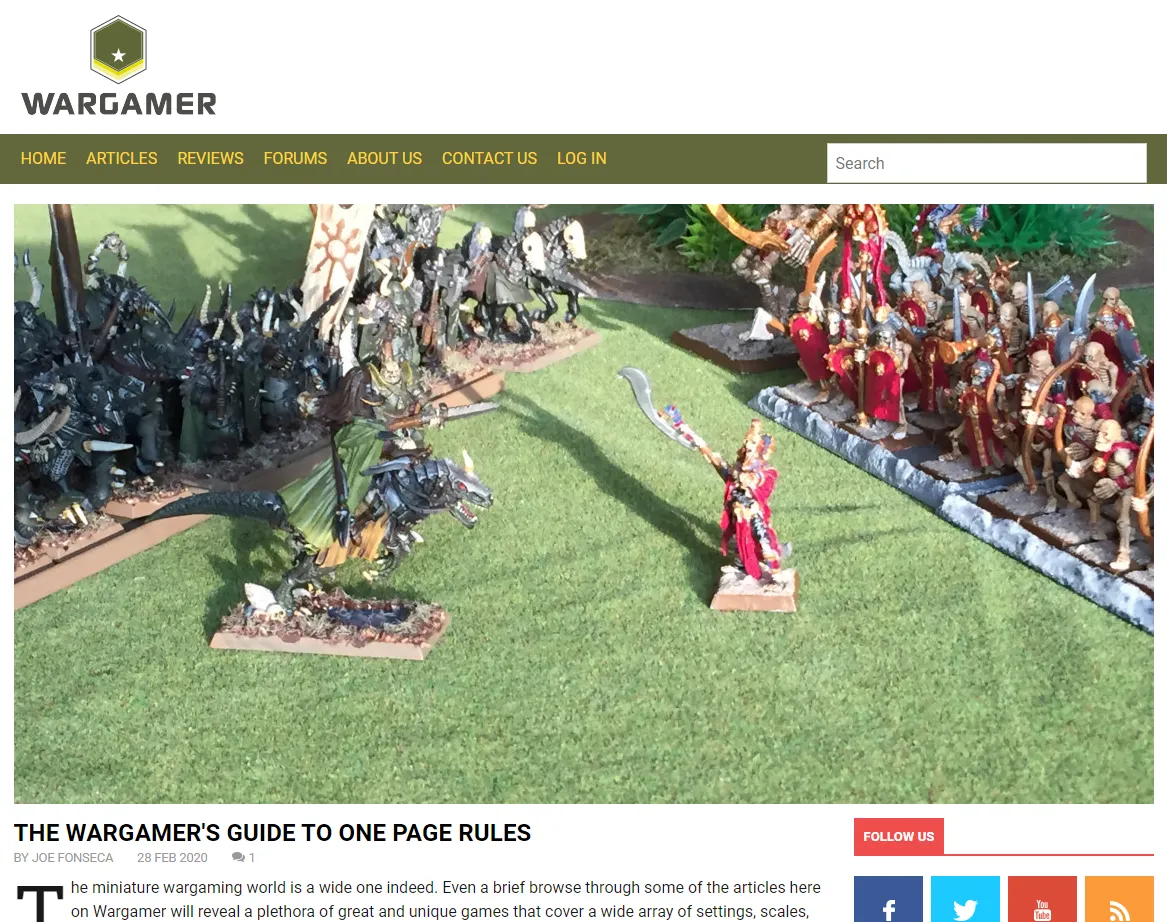
Yes, yes – I know. The name of the community is "Tabletop Role-Playing," so why in the world would someone link to a review of an entire suite of tabletop tactical wargame mechanics?
Once upon a time in the very early history of our hobby, there arose a thing called Dungeons & Dragons. But it was not the first thing. Before D&D there was Chainmail, a very tactical tabletop wargame which focused on low fantasy engagement and did all of the usual things you expect for such a thing to do. The players, however, wanted a more character-driven focus and began creating house rules to more specifically allow them to resolve conflicts between individual characters and the world at large. The same contexts of conflict were assumed to continue but a greater flexibility in what the scale of forced a player could afford to bring to bear became the new order of the day.
Chainmail was a creature of its time. The mechanics were what we would think of his extremely clunky, strangely proportioned, and weirdly scoped. You can see artifacts of many of the choices which originated in CM within D&D to this very day.
Rolling back to think about the origin of the hobby lets us consider options that might be unusual. I'm a great fan of looking at modern wargame design and thinking about how character roles can be evolved out of them or inserted into them to turn them into tabletop role-playing games without effectively neutering them and reducing how compelling that they are.
My usual toolset for this tinkering is almost anything from Two Hour Wargames, which I'm sure I've written about before. One Page Rules gives us another potential source to tinker with, one which has almost all of the mechanical complexity not necessary to reify the events of the game stripped away. That makes them excellent sources for beginning to hack on to make your own tabletop role-playing game with a strong mechanical core that you already know both works and doesn't take up 100 pages. Instead, the mechanics are succinct, easy to understand, easy to play with, and easy to extend.
Check out this review of the OPR by Joe Fonesea and see if anything "jumps off the page" at you and compels you to tinker with it. If you're looking for a place to start, Covering Fire! has incredible potential for being the basis of a role-playing game. So does War Stuff if you're looking to recapitulate the ontology of the indie itself. Double Tap would be an excellent basis if you're looking to start with a more sci-fi bent.
One of the great things about tabletop role-playing is that not only can you branch off your own mechanics for your own play but there's a certain level of expectation that you will do so. Take this is an invitation and run with it.
I would love to hear about any of your experimentation with this sort of thing. Comment down below if you have repurposed a mechanical system to your own role-playing needs.
If you’ve enjoyed what you’ve read here today and want to support my continued efforts to bring engineering, art, and the occasional philosophical divergence to the masses, please feel free to send me a tip. Or thousands of dollars, I’m really not that picky. It’s through the efforts of you and others of like mind that content like this gets created.
Thank you for your time.
PAYPAL: http://paypal.me/SquidLord
FLATTR: https://flattr.com/@SquidLord
BITCOIN: 1MN6AjntJp5f92kFZYhKaenSwWPeehhSjU
BAT: 0xcca4C3A3024d7496bDe06f6Fd865BfD5992Bf10B
STEEM: @lextenebris